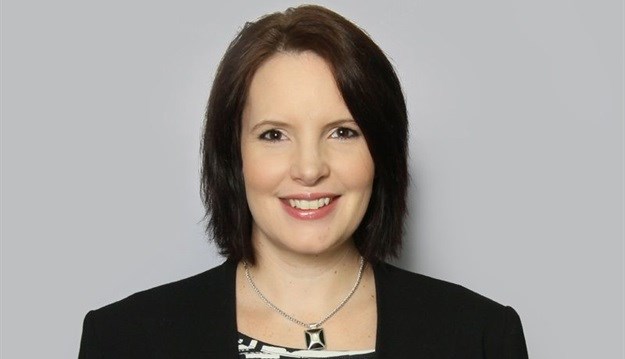#RecruitmentFocus: Resilience, resourcefulness and other ways to remain relevant in the 4IR workplace

Tell us a bit about yourself and how you got into HR?
Eaton-Gaul: As a kid I never wanted a desk job, I wanted to be Magnum P.I or MacGyver like everyone else. It wasn’t a great time for female role models and the only professional working woman I knew was the mom in “Who’s the Boss”, and she didn’t seem like much fun!
Luckily, my dad persuaded me that I needed to study and I changed from my original degree to HR at university without thinking much about it, if truth be told. I started working while I did my Honours as I couldn’t waste the opportunity to get work experience while I did post graduate studies, and in the same year I also completed an internship to become a Registered Counsellor. It was really tough. I have always worked hard to get good experience and good knowledge and I take every opportunity to develop in both of those areas whenever I can.
What do you love about your job? And have you ever felt the need to wear a flak jacket to work?
I asked our Marketing Manager if we could get branded flak jackets so that mine wasn’t quite so obvious but she said no. So I bought a blue one to match the tears of my opponents in high conflict meetings... only playing, it’s black, and it matches my shoes.
There are many things I love about my job. I love being able to be part of peoples’ career growth, giving someone a chance to study further and watching them grow into technical experts. I love the challenge of looking at a project and staffing it with people who have different talents and experience to maximise the strength of the team. There is so much more that is awesome about what I do, but the absolute best is calling someone who is desperate for an opportunity and offering them the job of their dreams.
HR generally catches a pretty bad rap in company hierarchy and there’s this impression that you’re only good when someone needs something from you. Have you or fellow HR professionals ever felt this to be true, and how can we go about changing this perception?
To be good at being in HR you have to be resilient and strong. You also have to know the strategic direction of the company you are working for and ensure that everyone is living up to the company values. To do a good job in HR means you are not always going to win the popularity contest as it is walking a tightrope between the employer and the employee, to make sure that everyone is going in the same direction and that there is consistency in the application of company rules and policies.
Understanding the intention behind a strategy or policy is key to making sure you know what is going on in the business and that you are adding value in the right areas. So frequent communication and engagement in the business is key.
The bigger your staff contingent gets, the more difficult it must become to maintain the company culture. Tell us a little about your process and what advice can you give to start-ups that are suddenly facing a rapid staff expansion?
I have had the benefit of being involved in businesses that have grown rapidly. Company culture does shift over time but if everyone lives by the same values then you have a good fit. As businesses grow, the threat is that relationships are harder to establish purely because of the size of teams and departments. The effect of this is the risk that employees are not fully engaged, and exposure to people who have been there some time and live the values of the business may be lacking.
New entrants to a business don’t know the history, so share the story of how you got to where you are and key events that happened. I don’t suggest using teambuilding for many things but if there are a lot of new people at one time, a teambuilding day where everyone can get to know each other outside of the office can be useful. An internal newsletter to make sure that people know what is going on in the business is a nice way of making things personal and celebrating achievements.
The best advice is really to keep it simple, go back to the basics, have face-to-face conversations, wish people happy birthday, and most importantly, management needs to listen to what is happening around them and the individuals in their teams.
The accounting and finance industry is one of the sectors that always crops up in those dreaded discussions about robots taking over our jobs. Is AI and automation a genuine threat? What changes have you seen – and what can those within the industry do to remain relevant?
There are certainly developments in technology that are changing our industry. I would doubt that there are many industries that are not in this situation. The difference for the accounting and finance industry is that up to now, there has been very little change in the last few decades so the status quo is well established and more resistant to change, even though it is both unavoidable and necessary. AI will certainly change the landscape in the accounting and finance profession. We are already seeing that there is a need for talent which is multi-skilled in both IT and Accounting.
AI will not replace the experienced professionals who will deal with complex issues in the near future, provided that they have kept studying and developing themselves so they remain relevant. The risk is that the lower levels where people traditionally gained experience could be replaced partially or in full by AI in future. The effect of this will be that it is harder for career entrants to get jobs and diversifying in skills sets will be critical to ensuring that new graduates are employable.










































